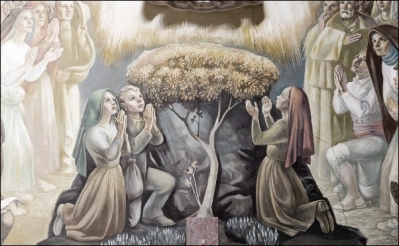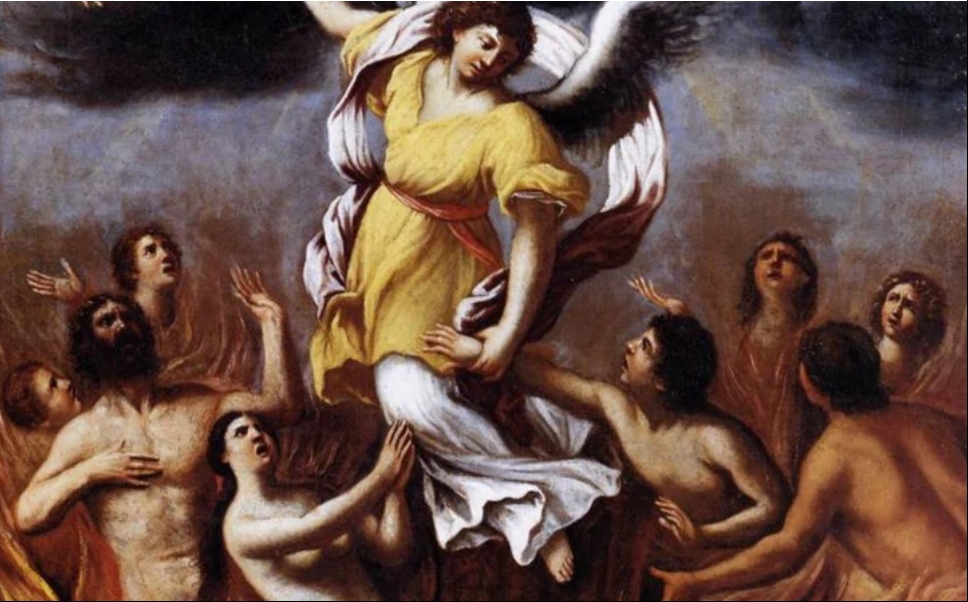And Jesus Wept
It may seem a paradox to call tears the seal of strength and yet when we carefully study the Scriptures we perceive that they have invariably proved one of the most powerful means of obtaining favors and graces from Almighty God. There are of course idle tears—”The tears forgot as soon as shed” the tears of a puerile and vacillating nature, just as there are vain fears, the fears of a weak and cowardly disposition. Yet we know that justifiable fear—the fear of the Lord is the beginning of wisdom, so in like manner we feel we are absolutely right in asserting real soul-stirring tears, tears that rush to the eyes from the depths of a penitent or broken heart- these are the seal of strength.
They appeal with irresistible force from our poor struggling hearts to the loving Heart of our Divine Lord and frequently work miracles by the potent spell of their supreme sanctity.
In the Old Testament we read that Hagar alone in the Desert with her loved and dying son—perishing from hunger, and thirst, and exhaustion, left him under a tree and going a little way cried aloud in her anguish.
“I will not see the boy die: and sitting over-against, she lifted up her voice and wept.”
Then an angel of the Lord appeared to her and showed her a well. It was full of sweet water beside her, but in her despair she had not noticed it until the heavenly messenger said to her.
“Arise, take up the boy, and hold him by the hand: for I will make him a great nation.”
Thus when the world was young God was moved to compassion by the strength of a mother’s grief, and so on from Genesis to the Days of our Saviour we see tears, genuine tears, heartfelt tears, winning blessings and graces, piercing from earth to heaven.
We read that Jacob wept when he believed that his beloved son Joseph was dead, but in His own good time Almighty God restored the lost son to the sorrowing father.
Again Anna, the mother of Samuel. wept because she was childless, and God heard her lamentations and in answer to her tears, although she was advanced in years, gave her the son she longed for.
Then are the fast flowing tears of Job, Job the Prince of Sorrow, and of Jeremiah the Prophet, whose very name is synonymous with tears. We cannot think of him without at the same time thinking of his lamentations: Sedit Jeremias propheta fiens: -the Prophet Jeremiah sat weeping -storming heaven with groans and moans and ceaseless lamentations.
There are several other incidents in the Old Testament of the surpassing power of tears, but it is in the New Testament that they are consecrated and made divine, because Jesus our God and our Saviour Himself shed tears.
Et lacrymatus est Jesus. And Jesus wept. The Gospel does not relate that Jesus smiled or Jesus laughed, it tells us that Jesus wept. Therefore, how blessed and inexpressibly beautiful are tears, whether the salt tears falling from the eyes of the penitent, kneeling like Magdalene at the Feet of Jesus, and like her washing those Sacred Feet with the bitter-sweet water that flowers in a shower of cleansing rain from sorrowful eyes. The tears of Mary Magdalene not only removed from the Feet of her Saviour travel stain and road dust, they at the same time purified her own soul from all stain of sin.
Then the Gospel narrates the pathetic story of the Widow of Nain, it tells of the tears of agony she shed – heartrending despairing tears, but no, not despairing for she trusts in God. Jesus is near, and in answer to her tears and supplications Jesus restores her son to life.
Another example of the marvelous efficacy of tears is the restoration to life of the Daughter of Jairus.
Thus the Gospel narrative tells us of two wonderful miracles worked by Our Lord in answer to tears, but before performing the greatest of all His miracles, He Himself wept.
Annals of St. Joseph, Volumes 31-33
The Norbertine Fathers
1919














































Leave a comment